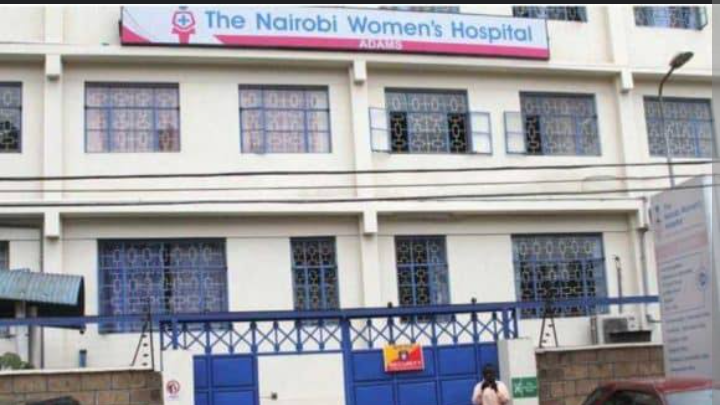Internal Whistleblower Uncovers systematic issues that lead to the abrupt closure of the Nairobi Women’s Hospital’s Rongai branch which has raised concerns among healthcare professionals and the public.
The hospital cited challenging economic conditions and external operational factors as reasons for this decision.
However, an internal whistleblower has provided a disturbing alternative narrative, shedding light on what may be deeper organizational dysfunctions within Nairobi Women’s Hospital that influenced the closure.
According to an anonymous source, these external factors are only a small part of the picture.
Allegations point to ongoing systemic issues in leadership, alleged mismanagement, and unethical practices that have not only weakened staff morale but also compromised patient care.
The insider claims that a leadership crisis is at the core of the hospital’s recent struggles, suggesting that the Rongai branch may be only the first in a series of potential closures unless immediate action is taken to address these internal problems.
One of the most concerning allegations revolves around unpaid salaries.
Since May 2024, several staff members reportedly have not received full compensation.
This financial strain has left staff struggling to meet basic needs, affecting their mental health and ability to provide quality patient care.
According to the whistleblower, some employees are under extreme pressure, dealing with mental health struggles due to prolonged financial stress.
The insider revealed that those unable to report to work due to financial difficulties, such as lacking money for transportation, are often met with disciplinary action.
Allegedly, management responds to such instances by issuing letters for absconding duty and even removing these staff members from the payroll if they persist.
This punitive approach has reportedly created a tense and hostile work environment, adding further stress to healthcare providers who are already stretched thin.
The whistleblower specifically accuses one senior hospital figure, identified as Eunice Wanjiku Munyingi, of exacerbating these issues.
According to the source, Wanjiku holds a prominent position within Nairobi Women’s Hospital while allegedly having conflicting interests in a neighboring healthcare facility.
This potential conflict has raised suspicions about whether the closure of the Rongai branch might benefit her affiliated institution, which reportedly has plans to expand into the same area.
Allegations of Patient Neglect and Poor Resource AllocationIn addition to concerns over staff treatment, the whistleblower highlights a troubling pattern of patient neglect.
For example, a recent incident involved a patient who allegedly passed away in the ICU due to inadequate care, attributed to the absence of a specialized doctor.
According to the whistleblower, the patient’s care was compromised because the management declined to provide transportation for a trained ICU staff member.
This tragic incident has heightened questions about the hospital’s commitment to patient welfare under the current administration.
Resource allocation issues reportedly extend to staffing decisions as well.
According to the whistleblower, when patient volumes increase, Heads of Departments (HODs) sometimes bring in additional staff to meet demand.
However, it appears that these decisions are not consistently supported by management.
In Wanjiku’s units, additional staffing is allegedly discouraged, even during peak times, contributing to a chronic under-resourcing problem that further impacts patient care.
The whistleblower’s account also draws attention to an unusually high rate of disciplinary actions within certain branches.
Specifically, branches like Adams, Kitengela, and Rongai (prior to its closure) are described as having a heavy-handed approach to discipline, which some employees believe is used to intimidate rather than to correct behavior or improve performance.
Employees claim that Wanjiku’s management style is characterized by an excessive focus on disciplinary measures, with little to no guidance, correction, or constructive feedback.
This approach reportedly contributes to an oppressive atmosphere, which, according to the source, is especially pronounced in units under her jurisdiction.
Legal experts may find the situation noteworthy, as it could potentially lead to a significant number of labor-related legal disputes if such practices continue unchecked.
Another issue raised concerns the transparency of financial transactions.
The whistleblower alleges that certain payments from insurance companies are sometimes misreported or misappropriated.
This lack of transparency around finances has further eroded trust within the organization, with some employees questioning whether these funds are fully utilized for their intended purposes.
In addition to the alleged ongoing mismanagement, the whistleblower claims that Wanjiku had previously been dismissed from Nairobi Women’s Hospital due to misconduct but was re-hired earlier this year.
The source argues that this re-hiring decision has led to new conflicts of interest, particularly regarding the establishment of a competing healthcare facility in Kitengela.
This potential conflict raises questions about whether the Rongai branch closure might be motivated, at least in part, by a desire to favor the competing facility.
The whistleblower’s allegations point to a crisis of leadership at Nairobi Women’s Hospital, raising questions about the accountability of top management figures. With these alleged issues left unresolved, the staff, patients, and wider public are left with concerns about the hospital’s direction and its commitment to patient care.
This insider’s detailed account emphasizes the urgent need for a thorough investigation into Nairobi Women’s Hospital’s internal operations. While the hospital may indeed face external economic pressures, it seems likely that internal dysfunctions have played a pivotal role in the recent branch closure.
Thus situation at Nairobi Women’s Hospital underscores the critical importance of ethical leadership, transparent management practices, and prioritizing patient care above all else.
The whistleblower’s allegations, if substantiated, suggest a need for comprehensive reforms to restore trust, retain qualified healthcare providers, and maintain a high standard of care for patients.





















Add Comment